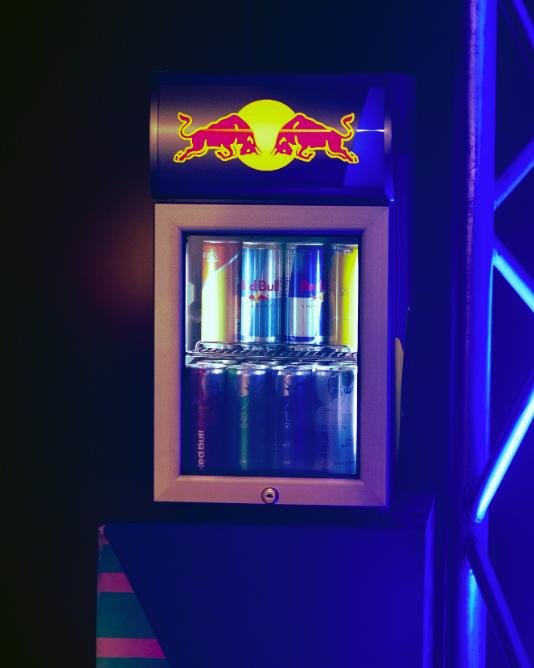Mini fridges, also known as compact refrigerators, are versatile appliances designed to store food and beverages in smaller spaces. With their energy-efficient design and compact size, they serve various purposes across different environments, including homes, offices, dormitories, and recreational vehicles. The unique appeal of mini fridges lies in their ability to provide refrigeration without the bulk of standard-sized refrigerators, making them an excellent choice for individuals and families with varying needs.
The primary function of mini fridges is to maintain food and drink at safe temperatures, preserving freshness and preventing spoilage. Their smaller footprint allows users to place them in locations where conventional refrigerators may not fit, such as under countertops, in small kitchens, or in rooms where space is at a premium. This accessibility enhances their practicality, catering to modern lifestyles that often prioritize convenience and efficiency.
Over recent years, there has been a marked increase in the popularity of mini fridges. This surge can be attributed to several factors, including rising urban living and the trend toward smaller homes where maximizing every square foot is essential. Additionally, mini fridges are frequently employed in settings such as college dorms, where students require easy access to snacks and beverages but may not have the space for a full-sized unit. Office environments also benefit from these compact appliances, allowing employees to store personal items or refreshments close at hand.
As consumers seek flexible solutions to meet their refrigeration needs, mini fridges continue to play an essential role. Their adaptability to various lifestyles and settings enhances their appeal, making them a practical choice for anyone looking to optimize their space while enjoying the benefits of chilled food and drinks.
Average Lifespan of Mini Fridges
Mini fridges generally have a lifespan that ranges from 10 to 15 years. This range is notably shorter when compared to standard refrigerators, which can typically last between 15 to 20 years under optimal conditions. The longevity of mini fridges is influenced by several factors including the quality of the unit, frequency of use, and maintenance practices.
When assessing the average lifespan of mini fridges, it’s essential to consider the quality of the materials and components used in their construction. Higher-end models often utilize more durable materials, which can lead to a longer functioning life. Conversely, budget models may incorporate lower-quality components that shorten their operational lifespan. Additionally, the usage patterns significantly impact the longevity of these appliances. Mini fridges that are consistently overloaded can experience greater wear and tear, potentially leading to a shorter lifespan.
Proper maintenance is a crucial determinant of how long a mini fridge can last. Regular cleaning of the condenser coils, ensuring adequate ventilation, and keeping the door seals intact can enhance energy efficiency and prolong the lifespan of the appliance. Additionally, avoiding frequent temperature fluctuations by minimizing the opening of the fridge door helps maintain consistent internal conditions beneficial for preservation and functionality.
Moreover, it is worth noting that the environment in which the mini fridge operates plays a significant role. For instance, units placed in very hot or humid areas may face challenges that can detract from their longevity. On the other hand, keeping the mini fridge in a consistently cool and dry area can help ensure that it works efficiently throughout its lifespan.
Factors Affecting Mini Fridge Durability
Understanding the longevity of mini fridges requires an exploration of several key factors that significantly impact their durability. One of the primary aspects influencing how long a mini fridge will last is the brand’s reputation. Established brands typically invest in quality materials and superior engineering, which often translates to a longer lifespan. Consumers should research and consider brands known for their reliability and sturdiness, as these factors play a critical role in overall performance and durability.
Another essential factor is the build quality of the mini fridge. Higher quality construction often includes robust components that withstand wear and tear over time. For example, a well-insulated compressor and efficient cooling system are vital for maintaining optimal performance. Investing in a mini fridge with strong structural integrity ultimately contributes to prolonged durability, reducing the likelihood of mechanical failures.
Environmental conditions also play a significant role in the lifespan of mini fridges. Factors such as temperature fluctuations and humidity levels can adversely affect the appliance’s performance. A mini fridge placed in a humid area may face challenges due to excess moisture, which can lead to rust and corrosion. Furthermore, extreme temperature conditions can strain the cooling system, resulting in increased wear and reduced efficiency over time.
Usage frequency is another vital consideration. A mini fridge used daily will inevitably experience more wear than one used occasionally. Understanding the intended use can help consumers select the right appliance that matches their lifestyle, thereby enhancing its potential durability. Regular maintenance practices, such as cleaning the condenser coils and monitoring temperature settings, can also extend the lifespan of a mini fridge. By adhering to these practices, users can avoid unnecessary strain and ensure that the appliance remains functional for many years.
Signs Your Mini Fridge Needs Replacement
Mini fridges are often praised for their compact size and convenience, but like all appliances, they have a limited lifespan. Understanding the signs that indicate when your mini fridge may need to be replaced is crucial in preventing food spoilage and ensuring efficiency. One of the most noticeable indicators is unusual noises. If your mini fridge begins to make loud or irregular sounds, such as banging or grinding, it could indicate a problem with the compressor or other internal components. These noises should be investigated promptly to avoid further issues.
Inconsistent cooling is another significant sign that your mini fridge may be nearing the end of its life. If you notice that your fridge is struggling to maintain a consistent temperature, it could lead to food safety concerns. This inconsistency may manifest as warm spots within the fridge or a failure to keep items adequately chilled. Regularly checking the temperature and rearranging items can help gauge the appliance’s performance, but persistent issues suggest a need for replacement.
Excessive frost buildup inside the freezer compartment can also serve as a warning sign. While a certain amount of frost is expected, significant accumulation can impair functionality and reduce available space. This frost buildup may indicate a malfunctioning defrost system, which typically requires professional repair or replacement of the unit itself.
Lastly, keep an eye on your energy bills. If you notice a sudden spike in energy consumption, this may signify that your refrigerator is working harder than it should. An aging or inefficient mini fridge can become increasingly costly to operate, making replacement a more economical choice. Recognizing these signs in a timely manner can help ensure that your food remains fresh and safe while avoiding unnecessary expenses.
Tips for Extending the Life of Your Mini Fridge
Maintaining the longevity of a mini fridge involves several proactive measures that can greatly enhance its lifespan. One key aspect is ensuring that the fridge is set to the optimal temperature. Typically, a temperature range of 32°F to 40°F (0°C to 4°C) is ideal for preserving food without overworking the appliance. Keeping the unit at the correct temperature not only keeps your food fresh but also conserves energy, reducing the strain on the compressor.
Regular cleaning is another critical factor in extending the lifespan of your mini fridge. It is essential to clean both the interior and exterior of the unit. Food particles, spills, and dust accumulation can affect its efficiency. A mixture of mild soap and water is recommended to wipe down surfaces, while the condenser coils, often located at the back or underneath the fridge, should be vacuumed or brushed periodically to prevent dust buildup that may hinder cooling performance.
Overloading the fridge can lead to inefficient cooling and increased wear on components, ultimately shortening its life. It is advisable to maintain adequate space between items to allow proper air circulation. Additionally, avoid placing hot food directly into the fridge, as this can raise the overall temperature within the unit and force the compressor to work harder.
Proper placement of the mini fridge is also vital for its efficiency and longevity. Ensure that it is located in a well-ventilated area, away from direct sunlight and heat sources such as ovens or radiators. This placement helps the appliance maintain its temperature with less effort involving compressor activity.
Lastly, conducting periodic checks on the fridge’s components, including the door seals and electrical connections, can catch issues before they become more serious. Replacing damaged seals and ensuring connections are secure can mitigate energy loss and enhance the overall performance of your mini fridge.
Energy Efficiency and its Impact on Longevity
Energy efficiency plays a significant role in determining the lifespan of mini fridges. When selecting a mini fridge, it’s essential to consider models that boast energy-efficient designs. Energy-efficient mini fridges are not only beneficial for reducing electricity bills but also contribute to a prolonged lifespan due to less strain on components throughout their operational years. These appliances are specifically engineered to minimize energy consumption while maintaining optimal cooling performance, which ultimately translates to less wear and tear over time.
Understanding energy ratings is vital for making informed choices regarding the longevity of your appliance. The Energy Star label, for instance, signifies that a mini fridge meets rigorous energy efficiency standards set by the Environmental Protection Agency (EPA). Such models tend to utilize advanced technologies that enhance insulation and compressor functions. Consequently, these features can lead to decreased cycling, resulting in lower operational stress and a longer lifespan.
Moreover, an energy-efficient mini fridge often operates at lower temperatures with less frequent compressor activation. This not only helps in maintaining food and beverage freshness but also alleviates potential mechanical issues associated with constant cycling. When appliances work efficiently, the reduced frequency of repairs and replacements is a notable advantage, which can lead to significant savings in both repair expenses and energy costs over time.
In essence, selecting a mini fridge based on energy efficiency not only supports sustainability but is also a prudent investment in ensuring longevity. Through careful consideration of energy consumption and its direct effects on appliance wear, consumers can enhance their overall experience and satisfaction with their mini fridge purchases.
Common Issues and Troubleshooting for Mini Fridges
Mini fridges, while convenient for residential and commercial use, may encounter a range of issues that can affect their performance and lifespan. One of the most common problems is blocked vents. When the air vents of a mini fridge become obstructed by dust, debris, or food items, it can lead to inadequate airflow, causing the appliance to run inefficiently. To troubleshoot this issue, users should regularly check and clean the vents to ensure unobstructed airflow, promoting optimal cooling performance.
Another frequent concern with mini fridges is compressor failure. The compressor is a vital component responsible for regulating temperature and ensuring the appliance functions correctly. Signs of compressor issues may include unusual noises, frequent cycling on and off, or the fridge not cooling adequately. In such cases, owners should first inspect the power source and ensure that the unit is plugged in and the outlet is functional. If these checks do not resolve the problem, the compressor may need professional servicing or replacement, which could be costly depending on the model.
Thermostat problems can also lead to performance issues in mini fridges. If the thermostat is malfunctioning, it can result in fluctuating temperatures, causing food spoilage or freezing. Users should start troubleshooting by verifying that the temperature settings are correct, adjusting them if necessary. Additionally, it’s advisable to examine the placement of the fridge. If it’s situated in a hot environment or direct sunlight, it could impair its ability to regulate temperature properly. Keeping the mini fridge in a shaded, well-ventilated area can significantly improve its efficiency. By addressing these common problems proactively, owners can enhance the longevity and reliability of their mini fridge, ultimately preventing premature failure.
Comparison with Other Refrigeration Options
When assessing the longevity of mini fridges, it is essential to compare them with other refrigeration options such as full-sized refrigerators and beverage coolers. Each type of refrigeration appliance possesses unique characteristics in terms of lifespan, efficiency, and suitability for specific needs.
Full-sized refrigerators typically have a longer lifespan than mini fridges, averaging between 10 to 20 years depending on the brand, model, and usage patterns. These larger units are designed to accommodate more extensive storage needs, making them suitable for families or households requiring ample food and beverage storage. However, their size and capacity come with higher energy consumption, which translates into increased utility costs over time. In contrast, mini fridges generally last between 5 to 10 years. While they may have a shorter lifespan, their compact size offers flexibility for small spaces such as dorm rooms, offices, or guest areas.
Beverage coolers serve a different purpose and can also be found in various configurations and sizes. Their longevity is often comparable to that of mini fridges, ranging from 5 to 10 years. Unlike mini fridges, beverage coolers are designed specifically for storing drinks at optimal temperatures. They may lack the versatility of mini fridges that can store both food and beverages. As a result, the choice between a mini fridge and a beverage cooler hinges on individual needs.
Ultimately, the decision on which refrigeration option to choose should be guided by specific requirements. For those seeking a versatile and compact solution, the mini fridge can be ideal. Conversely, families requiring more substantial storage or individuals needing a dedicated beverage cooling solution may find full-sized fridges or beverage coolers more suitable. Assessing the lifespan, efficiency, and overall utility of each option will be pivotal in making the right choice.
Conclusion: Making the Most of Your Mini Fridge
Understanding the longevity and lifespan of mini fridges is essential for making informed purchasing decisions and ensuring optimal performance. Throughout this article, we have discussed various factors that influence the lifespan of these compact appliances, including brand quality, maintenance practices, and usage frequency. A typical mini fridge can last between 10 to 15 years, provided it receives proper care and is not subjected to continuous overloading or neglect.
To maximize the lifespan of your mini fridge, regular maintenance is crucial. This includes cleaning the condenser coils to prevent dust accumulation, checking the door seals for any wear, and allowing adequate ventilation around the appliance. Users should also be mindful of the internal temperature settings, ensuring they are not set too low, which can lead to excessive energy consumption and wear on the compressor. By being proactive in maintenance, you can not only extend the life of your mini fridge but also enhance its energy efficiency, which can translate into cost savings over time.
Moreover, watching for signs of wear can provide insight into when your mini fridge may need repairs or replacement. Indicators such as inconsistent cooling, unusual noises, or persistent frost build-up should not be ignored, as they may signal larger issues that could impact the functionality of the appliance. Addressing these concerns promptly can help you avoid costly repairs or unwarranted energy costs.
In conclusion, investing wisely in a mini fridge involves careful consideration of quality, responsible usage, and diligent maintenance. By following the outlined guidelines, you can enjoy the benefits of your mini fridge for many years, ensuring it remains a valuable asset in your home. Understanding how to care for your appliance will contribute significantly to its longevity, allowing you to make the most of your investment.


